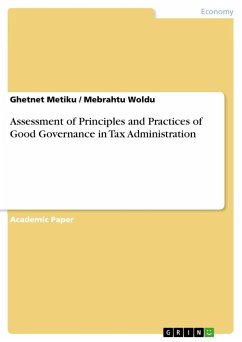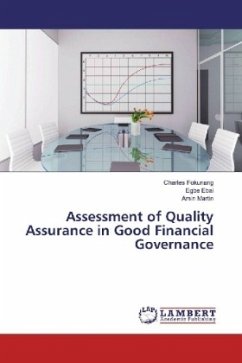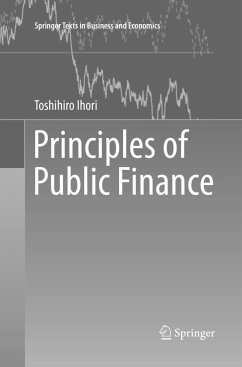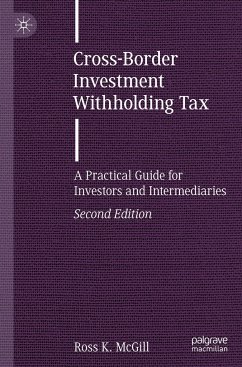
Assessment of Principles and Practices of Good Governance in Tax Administration

PAYBACK Punkte
0 °P sammeln!
Academic Paper from the year 2016 in the subject Business economics - Accounting and Taxes, , language: English, abstract: The significance of good governance in ensuring effective tax administration in the public sector and enhancing tax collection is an undeniable fact that is generally accepted. Yet, there is scanty empirical evidence on the actual application of the principles of good governance in the structure and operation of public sector institutions and its outcome, particularly in the tax administration system. Hence, purpose of this study is to investigate the measures taken to ins...
Academic Paper from the year 2016 in the subject Business economics - Accounting and Taxes, , language: English, abstract: The significance of good governance in ensuring effective tax administration in the public sector and enhancing tax collection is an undeniable fact that is generally accepted. Yet, there is scanty empirical evidence on the actual application of the principles of good governance in the structure and operation of public sector institutions and its outcome, particularly in the tax administration system. Hence, purpose of this study is to investigate the measures taken to institutionalize the principles of good governance within the Ethiopian Revenues and Customs Authority (ERCA). More specifically, the study assessed the level of conceptual understanding and commitment to the principles of good governance, measures taken to create ownership of the principles; the extent to which the ERCA put in place organizational policies, standards, strategies and structuresto institutionalize good governance, and measures taken to improve human resource capacity to implement the principles of good governance. In terms of scope, the study focuses on the assessment and collection of taxes from category "C" taxpayers in selected sub-city branches of the ERCA. The research is essentially a case study that uses quantitative and qualitative data gathered from primary and secondary sources to inform its findings. The bulk of the data for this study was generated from primary sources namely, the leadership and staff of the ERCA and category 'c' taxpayers as clients of the Authority. The study accessed these informants through key informant interviews, knowledge, attitude and perception (KAP) questionnaires and survey questionnaires. The research also utilized secondary sources in the form of documentation on the activities of the ERCA. Secondary data was gathered from both print and electronic sources including academic literature, laws and policies, organizational documents, and the ERCA website. The study found that, while there have been efforts to institutionalize the principles of good governance in the structure and operations of ERCA, these measures have not had the anticipated level of impact felt by the employees and clients of the Authority. This has been expressed in the limited confidence of employees and clients on the limited extent to which good governance principles have been internalized by the Authority, and the inadequate capacity of the Authority to identify and address instances of misconduct and corruption. [...]













